Last updated 8 months ago | Originally Published: August 19, 2024
William Wrigley Jr. was more than just the man behind one of the world’s most recognizable chewing gum brands; he was a visionary entrepreneur whose innovative approach to business left a lasting impact on the industry.
From humble beginnings, Wrigley transformed a small company into a global phenomenon through his dedication and unwavering commitment to his customers. His influence extends far beyond the products that bear his name, offering valuable lessons in leadership, resilience, and innovation that are still relevant today. Discover and learn more about Wrigley’s life, accomplishments, and how his legacy shaped modern business practices, providing insights that resonate with today’s entrepreneurs and leaders.
The Early Life of William Wrigley Jr.
William Wrigley Jr. was born in Philadelphia, Pennsylvania, on September 30, 1861. Growing up in a modest household, he was exposed to the hard work and determination that would later define his own business endeavors.
His father, William Wrigley Sr., was a soap manufacturer, and young William was introduced to the business world at an early age. This early exposure to his father’s business laid the foundation for his understanding of sales, marketing, and customer relations, sparking an interest that would guide his future career.
Wrigley’s formal education was relatively brief, as he left school at the age of 13 to work for his father. Despite the limited schooling, his early work experiences proved to be invaluable. By assisting in the family business, he learned the ropes of the trade, from production to sales.
The hands-on experience he gained during these formative years gave him a practical understanding of business operations and a firsthand look at the challenges and opportunities in the marketplace. His early education was thus more about real-world experience than academic learning, shaping his pragmatic approach to business.
In his late teens, Wrigley ventured out independently, moving to Chicago in 1891 with just $32 in his pocket. Like his father, he initially began selling soap but soon discovered that offering chewing gum as a promotional item was more popular than the soap itself. This realization marked the beginning of his entrepreneurial journey.
Wrigley’s knack for identifying and capitalizing on consumer trends became evident as he quickly pivoted his business to focus solely on chewing gum. These early experiences honed his entrepreneurial instincts and laid the groundwork for what would become one of the most successful brands in American history.
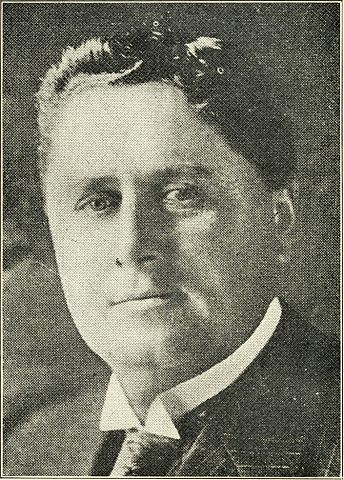
The Wrigley Company—A Vision Beyond Chewing Gum
William Wrigley Jr. founded the Wrigley Company in Chicago in 1891, beginning with selling soap and baking powder. However, his real breakthrough came when he noticed the popularity of a promotional item he included with purchases: chewing gum. Recognizing an opportunity, Wrigley shifted his focus from his original products to chewing gum, a decision that would shape the future of his company and mark the beginning of a successful venture.
Seeing the potential in chewing gum, Wrigley introduced Juicy Fruit in 1893, followed by Wrigley’s Spearmint. These products quickly gained popularity, establishing Wrigley as a major player in the market. His decision to concentrate solely on gum proved wise, allowing him to capitalize on the growing consumer demand. This strategic pivot highlighted Wrigley’s ability to adapt to market trends, which became a hallmark of his business success.
Wrigley’s marketing acumen played a crucial role in the company’s growth. He invested heavily in advertising, making Wrigley’s gum a household name. Wrigley differentiated his products and built a strong, recognizable brand using mass marketing techniques and creative promotional strategies. This focus on branding and a commitment to quality helped the Wrigley Company dominate the chewing gum industry.
The Wrigley Company continued to expand under William Wrigley Jr.’s leadership, introducing new flavors and innovative packaging that kept the brand fresh and appealing. Wrigley’s relentless pursuit of growth and his ability to anticipate consumer preferences ensured the company’s success. From its humble beginnings, the Wrigley Company grew into a global powerhouse, a testament to William Wrigley Jr.’s vision and business insight.
Marketing Genius—Revolutionizing Advertising
Wrigley Jr.’s innovative marketing strategies were instrumental in setting his company apart from competitors. He understood early on that success in the chewing gum industry required more than just a quality product; it demanded effective branding and consumer engagement. Wrigley pioneered new approaches to advertising that emphasized consistency and repetition, ensuring that his brands became ingrained in the public consciousness. His strategies were about selling gum and creating a lasting connection with consumers.
Central to Wrigley’s success was his use of mass advertising, a relatively novel concept at the time. He invested heavily in national campaigns, utilizing billboards, newspapers, and magazines to promote his products. Wrigley believed in the power of repetition and ensured that his ads were ubiquitous, making Wrigley’s Spearmint and Juicy Fruit instantly recognizable. This widespread visibility boosted sales and solidified Wrigley’s brand as a market leader.
Wrigley’s deep understanding of consumer behavior further fueled his marketing success. He recognized that consumers were drawn to brands they trusted and felt familiar with, so he focused on building that trust through consistent messaging and quality products. His promotional campaigns, which often included free samples and giveaways, were designed to create positive associations with the Wrigley name. This approach fostered brand loyalty and turned occasional buyers into lifelong customers.
The impact of Wrigley’s marketing techniques extends beyond his own company, influencing modern advertising practices. His emphasis on brand recognition, consumer trust, and mass advertising has become standard in the industry. Wrigley’s methods demonstrated that successful marketing is not just about pushing a product but about building a brand that resonates with consumers on a deeper level, a principle that continues to guide advertising today.
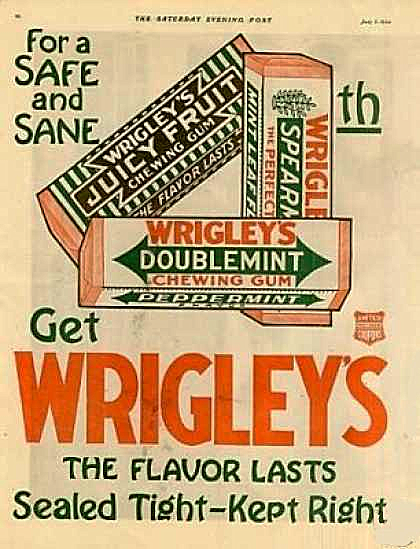
William Wrigley Jr’s Commitment to Quality and Innovation
William Wrigley Jr. was unwavering in his commitment to quality, believing that only the best products could earn and retain consumer trust. He ensured that every piece of gum met rigorous standards, a philosophy that became a cornerstone of the Wrigley brand. This dedication to quality set Wrigley apart from competitors and established his products as the gold standard in the industry.
Wrigley also understood the importance of innovation in staying ahead of the market. He invested heavily in research and development, continuously seeking ways to improve his products. Whether it was refining the gum’s texture or enhancing its flavor, Wrigley was committed to offering the best possible experience to consumers. This focus on R&D helped the company maintain its competitive edge.
Wrigley introduced new flavors and packaging innovations that resonated with changing consumer preferences to keep the brand fresh and appealing. These innovations, from the iconic Juicy Fruit to the long-lasting Wrigley’s Doublemint, ensured that the brand remained relevant and beloved for generations. Wrigley’s ability to blend quality with innovation was key to the company’s enduring success.
Legacy of Leadership—Wrigley’s Influence on Modern Business Practices
William Wrigley Jr.’s leadership style was marked by a hands-on approach and a deep understanding of his company’s operations, significantly influencing the company culture. He fostered an environment of mutual respect and collaboration, encouraging innovation and loyalty among his employees. Wrigley’s ability to lead by example and maintain a clear vision for the company’s future created a strong, cohesive workforce dedicated to the brand’s success.
Wrigley also emphasized employee well-being and corporate responsibility long before these concepts became standard in business. He introduced benefits and initiatives that supported his employees’ health and job satisfaction, recognizing that a happy workforce was crucial to the company’s long-term success. This commitment to his employees helped build a positive corporate culture that prioritized people as much as profits.
His leadership principles have impacted modern business practices, especially within the consumer goods industry. His focus on quality, innovation, and employee care has become a model for successful companies worldwide. Wrigley’s legacy in leadership extends beyond his products, influencing how businesses operate and how they treat their employees and customers today.
Key Collaborations and Influences
Key partnerships and collaborations were vital to the growth of the Wrigley Company. Strategic alliances with suppliers, distributors, and retailers ensured the brand’s products were widely available, establishing the foundation for Wrigley’s extensive distribution network. These relationships were crucial in building the brand’s dominance in the chewing gum market.
One of Wrigley’s most significant collaborations was his involvement with the Chicago Cubs. In 1916, Wrigley joined a syndicate that purchased the Cubs, and by 1918, he had gained controlling interest. His influence extended beyond chewing gum, as he played a pivotal role in relocating the Cubs to Wrigley Field, solidifying the park’s legendary status.
The insights of trusted contemporaries and advisors also shaped Wrigley’s business decisions. He sought guidance from industry leaders, leveraging their marketing, product development, and operations expertise. This collaborative approach allowed Wrigley to innovate effectively and maintain a competitive edge in a rapidly evolving industry.
These collaborations and advisory influences were integral to the Wrigley Company’s success. By partnering with others and embracing mentorship, Wrigley expanded his business beyond chewing gum, leaving a lasting legacy not only in the confectionery industry but also in professional baseball.
Leadership During Challenging Times
Leading the Wrigley Company through economic downturns, wars, and other crises required resilience and strategic foresight. The ability to adapt quickly and make tough decisions was crucial during challenging times. Despite limited resources, Wrigley navigated these periods by focusing on core strengths, maintaining product quality, and investing in advertising. This steadfast approach kept the company stable while others faltered.
Strategic decisions during these difficult periods ensured the company’s survival and growth. For example, during World War I, Wrigley shifted production to support the war effort while still keeping the brand in the public eye through innovative marketing. By staying agile and responsive to external pressures, the company not only weathered these crises but emerged stronger, with an even more loyal customer base.
The lessons from Wrigley’s crisis management are still relevant today. His emphasis on maintaining brand integrity, investing in long-term strategies, and adapting to changing circumstances provides a blueprint for modern business leaders. In times of uncertainty, the principles that guided Wrigley through difficult periods continue to offer valuable insights into sustaining growth and ensuring a business’s longevity.

Employee Empowerment and Development
Empowering employees played a crucial role in the success of the Wrigley Company. By placing a strong emphasis on employee well-being and development, Wrigley created an environment where workers felt valued and motivated. This approach led to increased productivity and a sense of employee ownership, which directly contributed to the company’s sustained growth and innovation.
Wrigley encouraged employees to take initiative and contribute ideas, which fostered a culture of innovation and loyalty. He believed that everyone in the company had the potential to make meaningful contributions, and this belief was reflected in the way he managed his workforce. Open communication, recognition of achievements, and opportunities for advancement were key elements in building a loyal and innovative team.
Programs and initiatives designed to support employee development were integral to this approach. Wrigley implemented training programs, offered educational opportunities, and provided health and welfare benefits that went beyond industry standards at the time. These initiatives enhanced employee skills and strengthened their commitment to the company, resulting in a highly skilled workforce that’s deeply loyal to the Wrigley brand.
Wrigley’s Long-Term Vision and Succession Planning
Planning for the future beyond his tenure was a key aspect of Wrigley’s leadership. Recognizing the need for stability and continuity, he took proactive steps to ensure the company’s success would endure long after his time. This long-term vision was about immediate growth and laying a foundation to support the company for generations.
Careful succession planning was implemented to secure the company’s future. Wrigley identified and mentored key individuals within the organization who shared his values and vision. By grooming these leaders and establishing clear succession protocols, he ensured that the company would continue to thrive under capable leadership, even after his passing.
The emphasis on succession planning highlights the importance of foresight in maintaining a company’s legacy. Wrigley’s approach demonstrates that a successful business is not just about present achievements but also about planning for sustainable growth and leadership transitions. This forward-thinking strategy remains a critical lesson for modern businesses, emphasizing that thoughtful succession planning is essential for preserving a company’s long-term success and legacy.
The Final Days and Goodbye
William Wrigley Jr.’s final days reflected a life well lived and a career marked by remarkable achievements in the business world. After decades of pioneering work in the chewing gum industry, Wrigley gradually stepped back from his day-to-day responsibilities, passing the leadership baton to his son, Philip K. Wrigley, ensuring the continuity of his vision.
Wrigley passed away on January 26, 1932, at the age of 70. His death marked the end of an era for the Wrigley Company and the broader business community, which had long admired his innovative spirit and dedication to quality. The loss was felt deeply by those who had worked closely with him and by the consumers who had come to trust the brand he built.
The funeral was a significant event attended by family, friends, and business associates who wished to honor the man who had revolutionized the chewing gum industry. Wrigley’s passing was the loss of a successful entrepreneur and the departure of a visionary leader whose strategies had reshaped the consumer goods landscape.
Despite his death, William Wrigley Jr.’s influence resonates within the Wrigley Company and beyond. The principles he championed—quality, innovation, and consumer trust—remain at the core of the company’s operations, ensuring that his legacy endures in the very products that still bear his name today.

Lessons from William Wrigley Jr.’s Legacy
Key takeaways from William Wrigley Jr.’s life and career highlight the power of innovation, dedication to quality, and the importance of strategic vision. His ability to adapt to changing markets, invest in branding, and maintain a relentless focus on product excellence set a standard that continues to influence the business world. These foundational principles shaped not only his success but also the long-term sustainability of the Wrigley Company.
Applying these lessons to today’s business challenges offers valuable insights. In a rapidly evolving marketplace, the emphasis on understanding consumer behavior, fostering strong employee relationships, and committing to continuous improvement remains crucial. Wrigley’s strategies demonstrate that businesses thrive when prioritizing long-term goals over short-term gains, a particularly relevant lesson in navigating modern economic uncertainties.
The enduring relevance of Wrigley’s principles is evident in how they continue to resonate in contemporary business practices. His approach to leadership, innovation, and market adaptation provides a blueprint for success that transcends time. These principles guide current and future business leaders, reinforcing the idea that sustainable success is built on a foundation of quality, vision, and adaptability.
Learn More About William Wrigley Jr.
For further exploration of William Wrigley Jr.’s legacy and the lasting impact of his innovative strategies, the following references provide comprehensive insights into his life, the company’s evolution, and his leadership principles.
- Mars-Wrigley Official Website: https://www.mars.com/
- Wikipedia: https://en.wikipedia.org/wiki/William_Wrigley_Jr.
- Encyclopedia Britannica: https://www.britannica.com/money/William-Wrigley-Jr
- Candy Retailer: https://www.candyretailer.com/blog/mars-inc

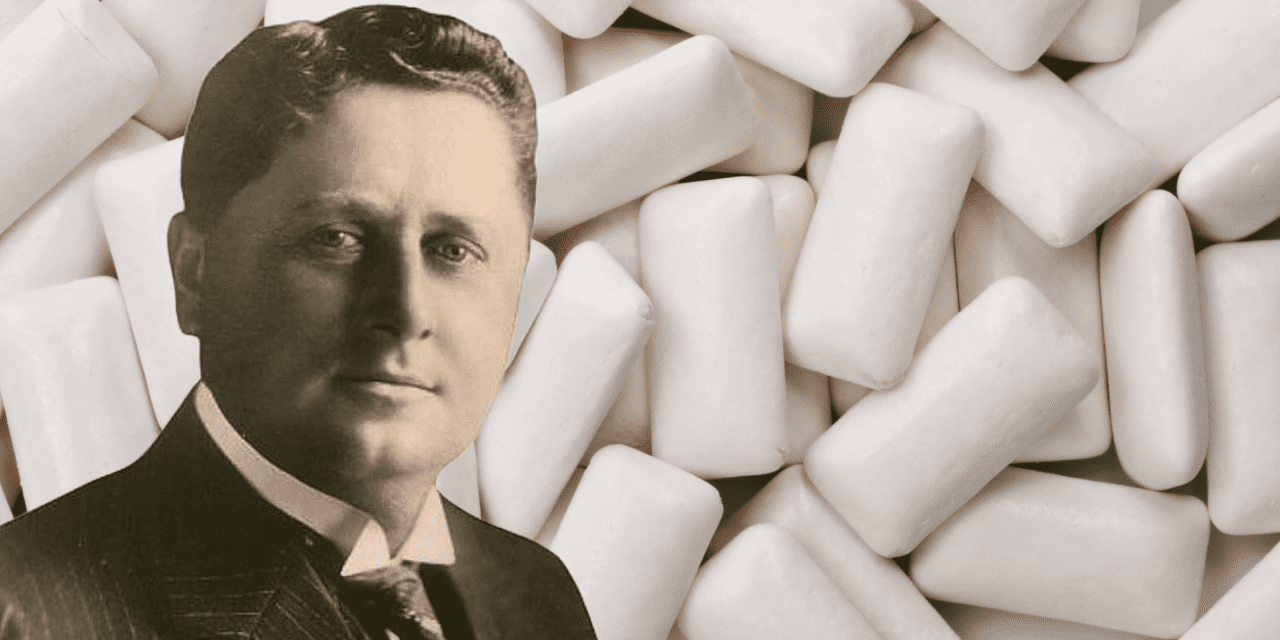
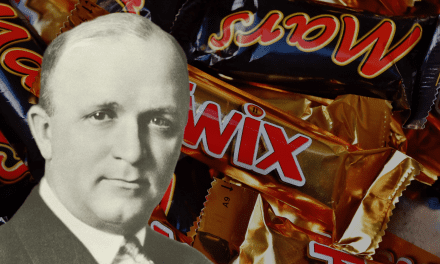
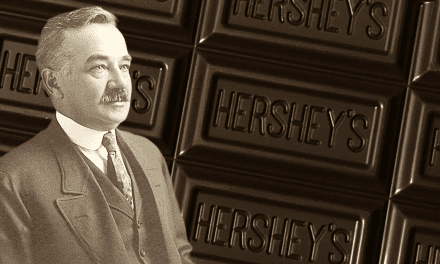


Recent Comments